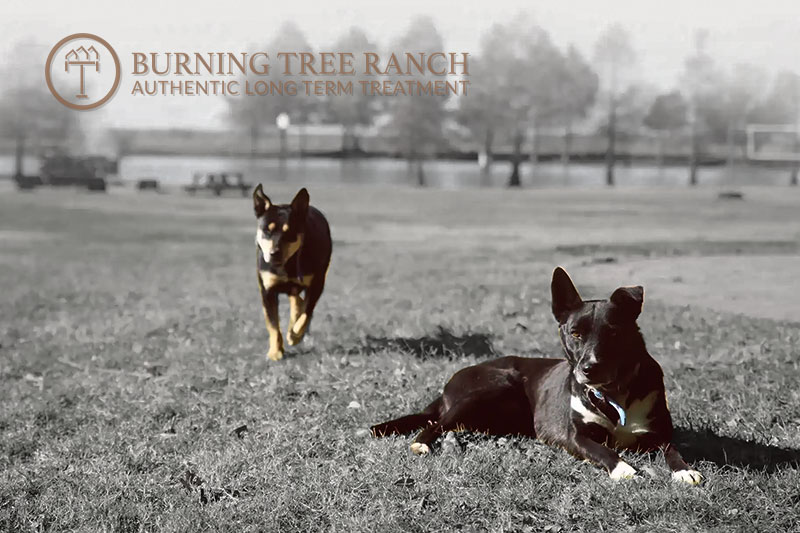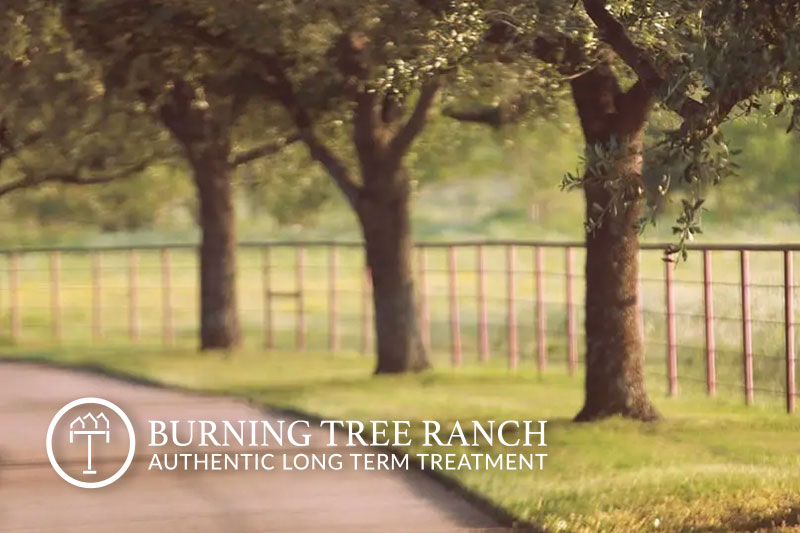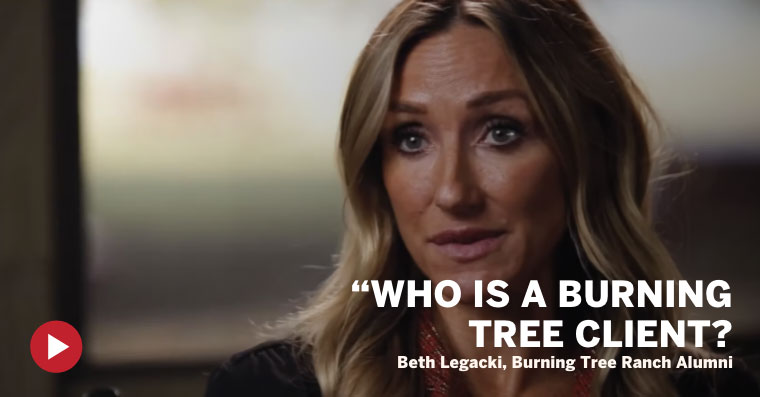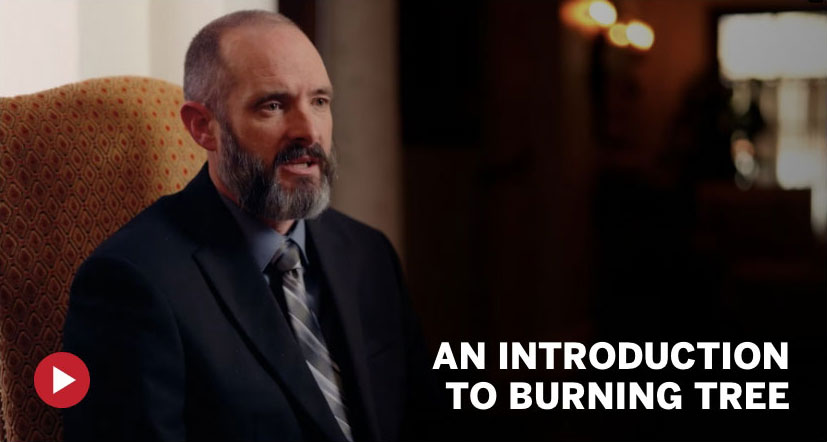Long-Term Addiction Treatment Referrals for Prosecutors & District Attorneys
Prosecutors or District Attorneys (DAs) play a pivotal role within the criminal justice system, which includes making decisions that can divert individuals with substance use disorders (SUD) toward treatment rather than traditional punitive measures. There are several circumstances under which they might refer a person to long-term, chronic addiction treatment center like Burning Tree Ranch.
Who We Are
Burning Tree Ranch is a specialty program dedicated to the treatment of chronic addiction and mental health. Our program is long-term, progress-based, and highly intensive. Since 1999, we have supported countless referring professionals in delivering ethical, high-quality solutions to the clients and families they represent.
Circumstances for Referral to Long-Term Treatment
Drug-Related Offenses
Individuals charged with drug-related offenses, particularly non-violent crimes that are driven by addiction, may be considered for treatment programs as an alternative to incarceration.
Repeat Offenses
Seeing a pattern of repeated offenses that suggests underlying issues with substance abuse, indicating that the root cause of criminal behavior is addiction rather than a propensity for criminality.
Co-occurring Disorders
Identifying individuals with co-occurring mental health issues alongside substance abuse, where incarceration might exacerbate their condition, and treatment could provide a more beneficial outcome.
Pretrial Assessments
During pretrial assessments or through recommendations from defense attorneys, learn about the individual's substance use history and its impact on their behavior and criminal charges.
Family or Community Impact Statements
Hearing from families or community members about the individual's struggle with addiction and its effects on their life and the community suggests that treatment could be a more constructive response.
Observations Informing the Need
Prosecutors and DAs, by referring individuals to long-term, chronic addiction treatment, can facilitate a more rehabilitative approach to justice, focusing on treating the underlying causes of criminal behavior. This not only aids in the individual’s recovery but also serves the broader interests of public health and safety, potentially reducing recidivism and fostering a more supportive community environment.
Non-violent Nature of Crimes: Observing that the crimes committed are non-violent and closely linked to the individual’s substance use disorder suggests that public safety might be better served through treatment rather than punishment.
Lack of Prior Criminal Record: Noticing that the individual has no significant prior criminal record, indicating that the current legal issues are more closely related to substance abuse.
Willingness to Seek Help: Detecting a willingness or openness from the individual to engage in treatment can significantly increase the chances of successful rehabilitation.
Overburdened Legal System: Recognizing the strain on the legal and penal systems from incarcerating individuals with SUD, prompting a shift towards treatment options to reduce recidivism and support recovery.
Evidence of Substance Abuse as a Key Factor: Gathering evidence during the case preparation that strongly indicates substance abuse is a primary factor in the individual’s criminal behavior.

Prosecutors Pioneering Change:Integrating SUD Treatment into Legal Outcomes
The responsibility of a Prosecutor or District Attorney (DA) to recommend long-term chronic addiction treatment for an individual involved in the criminal justice system centers around a commitment to public safety, justice, and the rehabilitation of offenders. This duty reflects an understanding that addressing the root causes of criminal behavior, such as substance use disorders (SUD), can lead to more positive outcomes for the individual and society.
Balancing Public Safety and Rehabilitation
Recognizing that public safety extends beyond incarceration, encompassing the health and rehabilitation of individuals to prevent future offenses.
Ensuring that justice is served through punishment and opportunities for rehabilitation, particularly for non-violent offenders whose criminal behavior is directly linked to SUD.
Legal and Ethical Considerations
Upholding a moral duty to seek justice, which includes considering alternatives to incarceration that may offer better long-term solutions for individuals with SUD.
Making recommendations based on a comprehensive assessment of the individual’s circumstances, including the nature of their offenses, their criminal history, and the role of substance use in their behavior.
Advocacy and Support
Supporting diversion programs, drug courts, or other legal mechanisms that allow individuals with SUD to receive treatment as an alternative or complement to traditional sentencing.
Working collaboratively with addiction treatment providers, mental health professionals, and social services to create a support network for individuals referred to treatment.
Implementation of Treatment Referrals
Establishing transparent, fair processes for assessing individuals’ eligibility for treatment referrals, ensuring that those who could benefit from such interventions are appropriately considered.
In cases where treatment is part of a plea agreement or sentencing, mechanisms are in place for monitoring the individual’s progress in treatment and compliance with court-ordered requirements.
Education and Awareness
Promoting understanding among legal professionals, law enforcement, and the public about the benefits of treatment over incarceration for individuals with SUD, aiming to foster a more rehabilitative approach within the criminal justice system.

From the Courtroom to Recovery: Legal Pathways to SUD Treatment
Prosecutors and District Attorneys (DAs), operating within the criminal justice system can significantly influence individuals with substance use disorders (SUD) to engage in and complete long-term treatment. While their primary role is to uphold the law, they can also act in ways that serve the broader interests of justice, public health, and family well-being. Here’s how they might create motivation and incorporate leverage for treatment:
CREATING MOTIVATION FOR TREATMENT
- Highlighting the Benefits of Treatment: Prosecutors and DAs can discuss the potential benefits of treatment, such as improved health, better family relationships, and reduced risk of future legal issues. Emphasizing the positive outcomes of treatment can motivate individuals to participate willingly.
- Offering an Alternative to Incarceration: By presenting treatment as an alternative to incarceration, they can create a powerful incentive for individuals to choose recovery. This approach benefits the individual and alleviates the burden on the criminal justice system.
- Educating on the Consequences of Non-Compliance: Explaining the legal consequences of failing to complete treatment, including potential incarceration or other penalties, can motivate compliance with treatment programs.
- Involving Families in the Process: Engaging family members in the legal and treatment process can motivate individuals to seek and complete treatment. Family involvement often highlights the broader impact of SUD and the collective benefits of recovery.
Incorporating Leverage for Treatment
- Conditional Plea Agreements: Prosecutors and DAs can use plea agreements that include treatment as a condition of reduced charges or sentencing. Completing treatment may lead to lesser penalties, while failure to comply can result in predetermined legal consequences.
- Drug Courts and Diversion Programs: Recommending individuals for participation in drug courts or diversion programs that focus on treatment and rehabilitation over punishment. These programs often include regular drug testing, treatment sessions, and judicial oversight, creating structured incentives for completion.
Monitoring and Reporting: Establishing a system where treatment progress is monitored and reported to the court. Regular updates can keep individuals accountable and provide an ongoing incentive to remain engaged with treatment. - Leveraging Community Resources: Facilitating access to community resources, support groups, and aftercare services that can support individuals during and after completing a treatment program. Knowing a network of support can motivate individuals to commit to recovery.
- Highlighting Future Opportunities: Discuss how successful treatment and compliance with legal conditions can open up opportunities for expungement, reduced record impact, or other legal benefits in the future. This long-term perspective can motivate individuals to see treatment as an investment in their future.
Through these strategies, Prosecutors and DAs can play a crucial role in motivating individuals with SUD to engage in the treatment, leveraging their legal authority to encourage choices that benefit the individual, their family, and society.
Considering Long-Term Treatment for Your Client
The Need to Act
What are the circumstances under which you may refer a person to long-term, chronic addiction treatment? What are you observing that informs you of the need to act?
Fiduciary Duty
Do you have a moral or fiduciary responsibility to make a recommendation for long–term chronic addiction treatment for your client?
Motivation for Completing Treatment
What motivation for treatment might you be able to create as a trusted professional serving a family’s best interest? How might you incorporate leverage for the client to go and complete treatment?

We've Worked Closely with Legal Professionals to Refer Clients to Burning Tree for Long-Term Treatment
How Do I Know If My Loved One is a Fit for Burning Tree Ranch?
Authentic Long-Term Treatment
Burning Tree specializes in treatment for Chronic Relapse
We understand the complex, multi-faceted issues many of our families face when it comes to addiction. The circumstances of long-term residential treatment allow us to create a treatment program unlike anything else in the world.
Operating outside the limitations of a traditional 30, 60 or 90-day format, Burning Tree adheres to progress-based metrics that inform the clinical treatment team of the unique mental, emotional and spiritual needs of the individual.
We are the only treatment center in the United States that combines time-intensive residential treatment with a therapeutically coordinated aftercare program focused singularly on the treatment of chronic relapsers.
Featured In Top Publications













